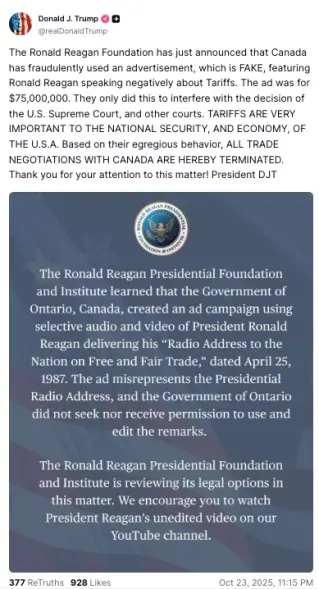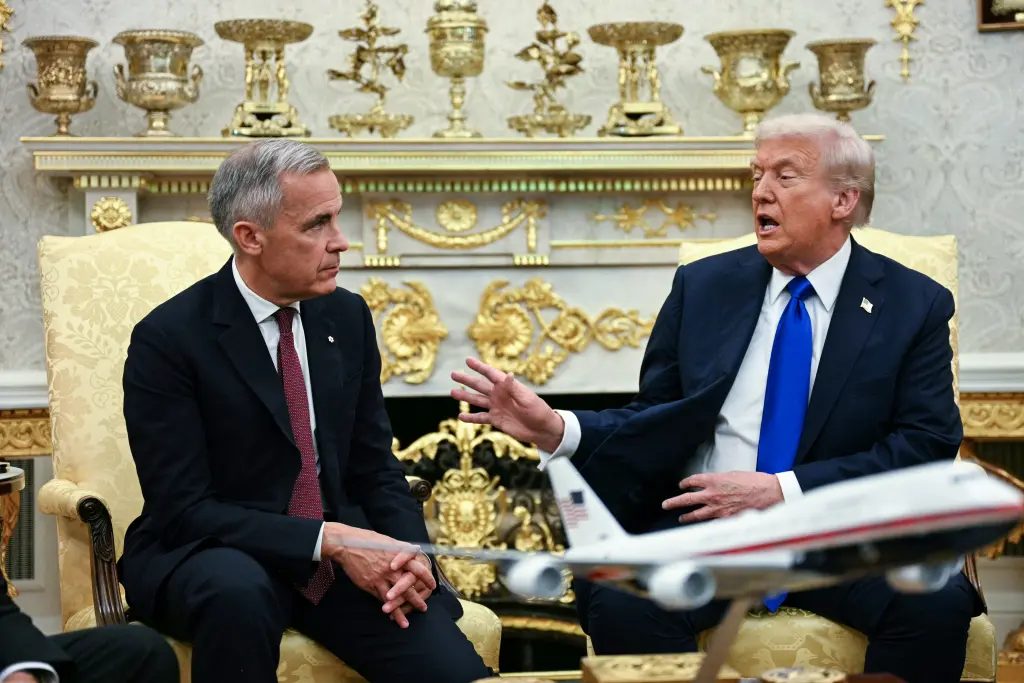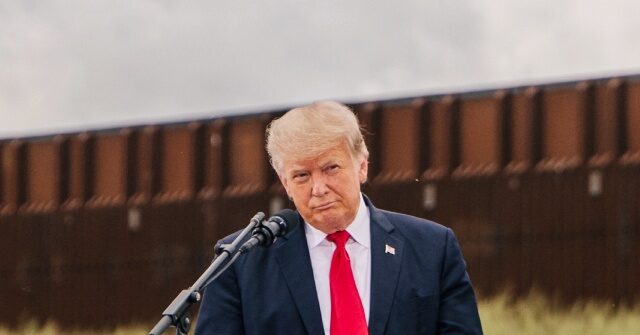In a surprising and sharp move, President Donald Trump called off trade negotiations with Canada on Thursday, following the release of a controversial ad funded by the Ontario government. The ad, which features a voiceover of former President Ronald Reagan, criticizes Trump’s tariff policies and was met with backlash from Trump and the Ronald Reagan Presidential Foundation.
Trump took to Truth Social late Thursday, accusing the Canadian government of using a "fake" ad to undermine U.S. tariffs. The ad, which was part of a $75 million campaign funded by the Ontario government, uses Reagan’s voice to argue that tariffs are not effective in the long run. The ad specifically refers to Reagan’s "Radio Address to the Nation on Free and Fair Trade," delivered on April 25, 1987. In the ad, Reagan suggests that tariffs do not lead to prosperity, a message that Ontario Premier Doug Ford echoed in promoting the campaign.
Trump blasted the ad as an attempt to interfere with ongoing legal challenges to his authority to issue tariffs, stating, “The Ronald Reagan Foundation has just announced that Canada has fraudulently used an advertisement, which is FAKE, featuring Ronald Reagan speaking negatively about Tariffs.”

Trump further emphasized the importance of tariffs, claiming they are critical to U.S. national security and economic strength, and vowed to terminate all trade negotiations with Canada in response to the ad. “Based on their egregious behavior, ALL TRADE NEGOTIATIONS WITH CANADA ARE HEREBY TERMINATED,” Trump declared.
The ad, which is set to air across various U.S. television networks including Newsmax, Fox News, Bloomberg, and others, has drawn sharp criticism for its selective use of Reagan’s speech. The Ronald Reagan Presidential Foundation and Institute issued a statement saying that the ad misrepresented Reagan’s original remarks. According to the foundation, the Ontario government did not seek permission to use or edit Reagan’s speech, and the organization is now reviewing its legal options.
The timing of the ad is significant, as Trump has imposed a 35% tariff on most Canadian goods, citing the country’s failure to address the illicit flow of fentanyl and other drugs into the United States. The Supreme Court is set to hear arguments next month in a case that could determine the legal legitimacy of Trump’s broad tariff policies.
The move by Trump underscores the continuing tension between the U.S. and Canada over trade policies, with this latest incident highlighting the political and legal stakes surrounding tariffs and international negotiations.


